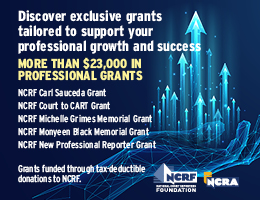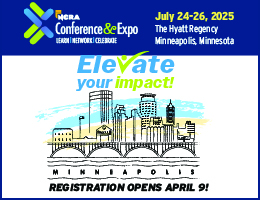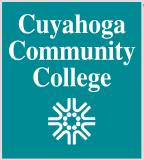In 2010, NCRA’s Education Department began to reach out to students by hosting mini conventions on the campuses of court reporting schools in an effort provide them with additional resources and the opportunity to meet and network with working professionals, educators, and vendors of products and services that support the court reporting field.
Since the start of the program, the Association has hosted between two and four mini conventions each year, and the response has been overwhelming, according to Lynette Eggers, CRI, CPE, NCRA’s assistant director for Educational Services. Even better than that, the events have proven to be priceless to students.
“Once a school is chosen as a mini convention site, NCRA’s Education Department works with the school’s president and other representatives to develop a tailored program that includes a keynote speaker and sessions that address a variety of aspects about the court reporting profession,” Eggers says.“The speakers include members of NCRA’s Board of Directors, various committees, and professionals deemed experts in a particular area. In addition, we invite vendors to participate and include networking breaks throughout the event so that students have the opportunity to talk with them and experience firsthand the products and services they offer.”
In 2013, NCRA hosted two mini conventions. The first, held in May at the Community College of Allegheny County in Pennsylvania, featured keynote speaker Bill Weber, RDR, CRR, from Bethel Park, Pa., who shared his experience reporting on the 9/11 terrorist trials taking place at the U.S. Naval Station at Guantanamo Bay in Cuba. Weber reinforced to students the importance of joining their state and national associations and associating with key groups of other reporters to ensure further development of their skills and their overall success as reporters.
“Building these relationships is especially important in this day and age when so many reporters no longer work in an office with other reporters. They need to have other reporters nearby to relate to, and associations are where that can take place,” Weber says. “While my presentation talked about the GTMO experience, I also shared how I become involved with my state association, which sent me to leadership training and resulted in my meeting Nancy Varallo, NCRA’s current president. I made friends with Nancy, and through that relationship, I met Lorene Eppley, RPR, a firm owner from Boston, Mass., who had landed the GTMO contract and eventually led to my contract for this work.”
Weber says that he also stressed to students the importance of earning professional certifications, pointing out that only reporters who held the Certified Realtime Reporter certification from NCRA could apply for the GTMO team.
According to Weber, the students were truly engaged in each of the seminars that were presented at the May mini convention, which also covered overcoming the test-taking heebie-jeebies, the perspectives of a freelance court reporter working in Pennsylvania, the genesis of CART reporting in the city of Pittsburgh, and planning for success.
“The greatest value students receive from attending an NCRA mini convention is the ability to speak with working reporters from all facets of our industry and to learn about the various options that they have in our field after they graduate,” says Steve Zinone, RPR, from Canandaigua, N.Y., NCRA’s current Secretary-Treasurer. Zinone was the keynote speaker at a June mini convention at Long Island Business Institute in New York.
“These events are also extremely important because the students hear firsthand how experienced reporters also struggled at times in school, especially with speedbuilding skills, and what techniques they utilized to conquer those learning plateaus,” he added.
During his address at the Long Island Business Institute, Zinone says he emphasized the history of court reporting, which dates back centuries to when the Roman philosopher and politician Cicero relied on Tiro as his scrivener. He also stressed that students and working reporters are each part of the profession’s evolution. Zinone said he also stressed the importance of mentoring.
“I am fortunate to have four mentors who I reach out to on a weekly and sometimes on a daily basis for advice and guidance. I encourage every court reporting student to have one, not only during school but throughout their professional career,” he says.
In addition, students at the Long Island event attended sessions that addressed developing dictionaries in realtime reporting, overcoming test anxiety, getting ready to work, becoming realtime-ready, and top tips for becoming a broadcast captioner.
Like Weber, Zinone says he also took the opportunity to encourage students to begin networking while they are still in school, suggesting that they join their state and national associations and attend NCRA conventions to network with other professionals and have the chance to kick the tires on all the latest technologies that vendors showcase.
“I also encourage students that when someone says to them that they’ll be replaced by an audio or video recording device, to relay this message to them:
“During the Sept. 11, 2001, attacks on our country, there were 36 million deaf Americans and double that number of hard-of-hearing Americans who relied on the closed captioning that was being provided by an amazing group of professional stenographic reporters, who worked hour after hour, day after day, during one of the worst times in our great nation’s history. Now, imagine yourself as being one of those deaf and hard-of-hearing Americans, sitting in your apartment on the 45th floor, watching those terrible events unfold. Without the captioning, you would have thought the world was coming to an end — if not for those brave and heroic reporters providing that closed captioning, shedding tears just like all of us, as their hands moved swiftly and precisely over the keyboard that Ward Stone Ireland created for us to use in 1911, you would have been lost. We all have a skill that is truly a gift that cannot be replaced with a digital/video recording device. And if they don’t or can’t understand that, remind them about 9/11.”
For more information about NCRA’s mini conventions, contact Lynette R. Eggers, NCRA’s Assistant Director of Educational Services at 800-272-6272 or 703-556-6272, ext.173.









